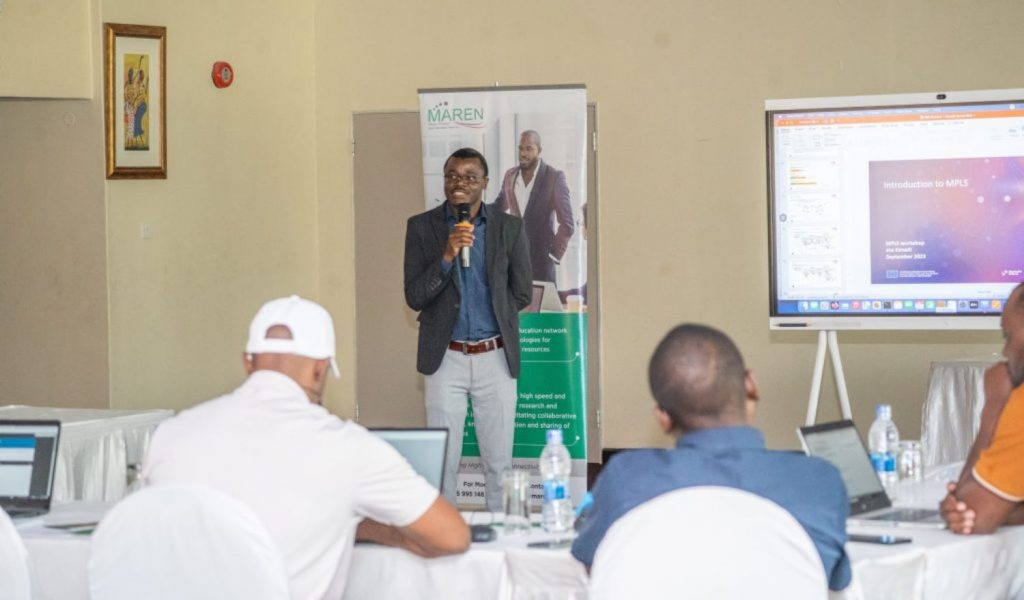Research and education institutions on the Malawi Research and Education Network (MAREN) will soon start experiencing faster sharing of information and resources between themselves and their peers, following plans by MAREN to adopt a new networking routing system.
MAREN CEO Solomon Dindi made the pledge on Monday in Lilongwe during the opening of a five-day Multiprotocol Label Switching (MPLS) training organised by UbuntuNet Alliance.
The meeting has drawn participation of at least 15 network engineers from National Research and Education Networks (NRENs) from Kenya, Madagascar, Mozambique, Tanzania, Zambia and Uganda.
“Our academic and research institutions are growing, and some have multiple campuses. To share data efficiently, these campuses must use Morden technology and systems. This training workshop will empower us to redesign our network from the traditional routing system to the switching aspect using MPLS. This will simplify the flow of traffic, especially for institutions that have several campuses, resulting in faster sharing of information between themselves and their peers elsewhere, ”said Dindi
Dindi added that the training will also help MAREN to seamlessly peer with other NRENs beyond the continent through MPLS links.
“Fellow NRENs in other countries, such as Kenya, share information and resources directly with NRENs from European countries such as Germany. We intend to take the same path by peering with other NRENs beyond Africa and are finalising peering agreements; once the agreements are in place, MPLS links will be the easier and more efficient way of sharing information and resources,” added Dindi.
In his remarks, UbuntuNet Alliance Project Manager Eliakim Okundi said the training is part of the strategy by UbuntuNet Alliance to develop the skills of engineers for academic and research institutions to ensure better management of university networks.
This article was originally posted by MAREN on their website: https://maren.ac.mw/?p=3164

